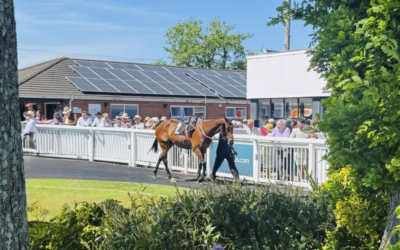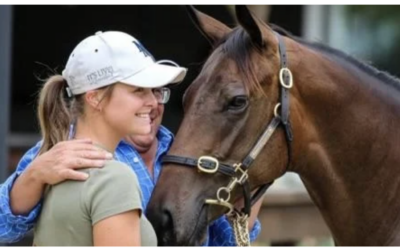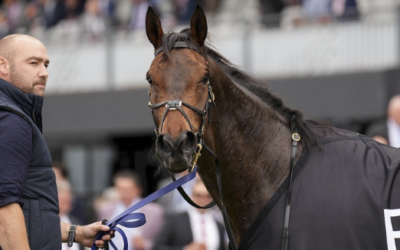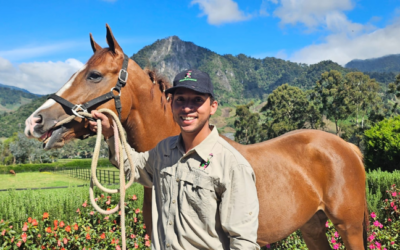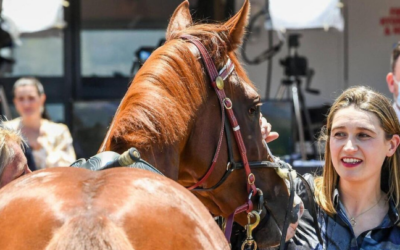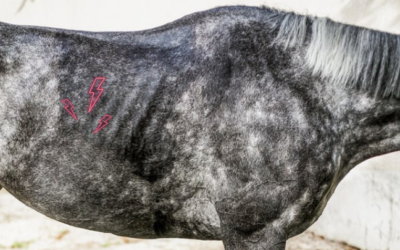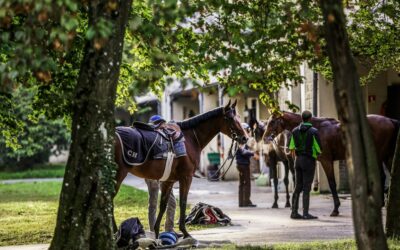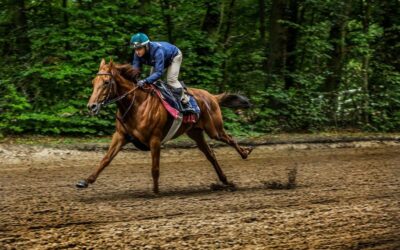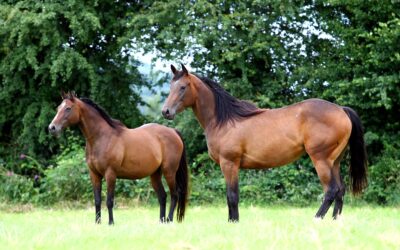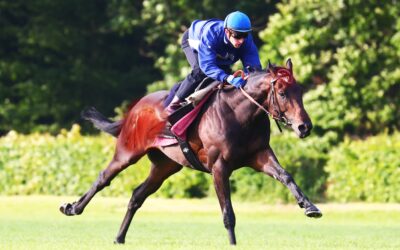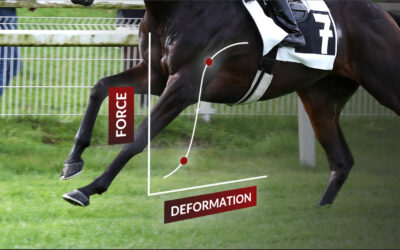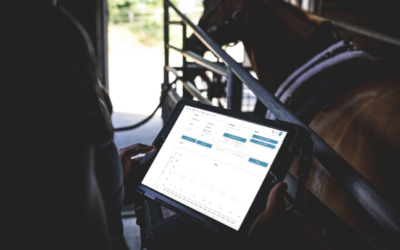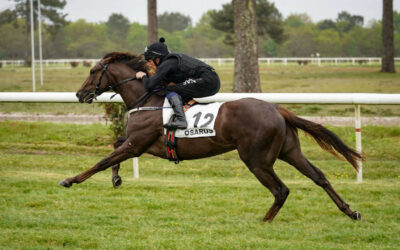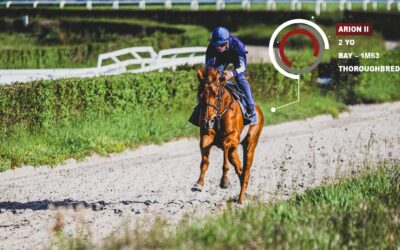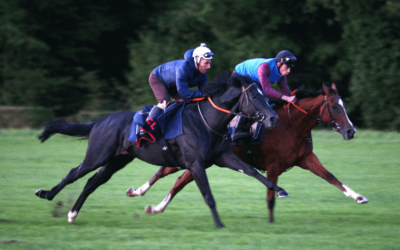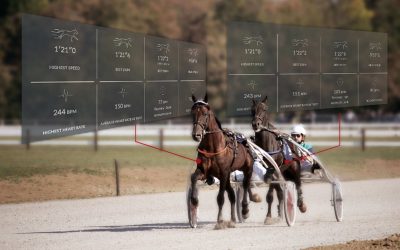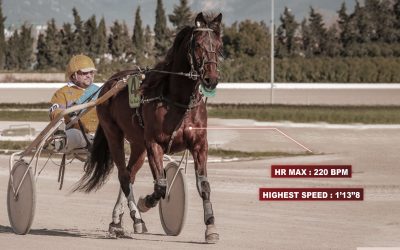EXPLORE OUR BLOG
Here you will find a lot of information to better understand performance and health measurements as well as tips about racehorse training and well-being.
LATEST ARTICLES
Interview with Matthew Taylor: what the Essentials & Advanced programs brought to his professional experience
Discover Matt Taylor’s opinion on Arioneo Institute training courses and the evolution of human and equine performance thanks to new technologies.
“It’s exciting and we can’t wait to learn more”- horses to wear heart rate monitors (Equimetre) in BHA pilot
Like all major sports, advances in technology and data science are playing an increasingly important role across British racing, especially when it comes to improving horse welfare, safety and performance.
How the Advanced program helped Tammy Feek harness the full potential of equine data
Having used Equimetre technology for several years, Tammy explains how the program has deepened her understanding of data analysis and its role in optimizing racehorse performance and well-being.
Michael Blomeley: How the Advanced program is helping racehorse training with data science
Driven by his ambition to become a successful trainer, Michael explains how the Advanced program has equipped him to integrate data and sports science into his daily routine.
Jose Gutierrez & the Advanced program : Enhancing horse training with data analysis
In the world of horse racing, success is often attributed to instinct, experience, and tradition. However, Jose Gutierrez is proving that data analytics is the next frontier in optimizing performance and ensuring equine well-being.
Caroline Jennings & the Advanced program: revolutionizing equine research
Caroline Jennings, expert trainer in biomechanics and equine research, integrates cutting-edge analysis to optimize horse performance and well-being.
BROWSE AMONG OUR CATEGORIES
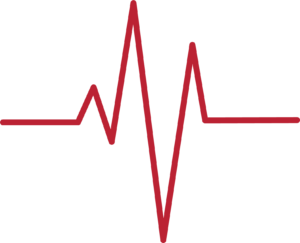
Equine Physiology

Testimonials
Racehorse training
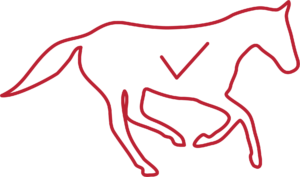
Young racehorses
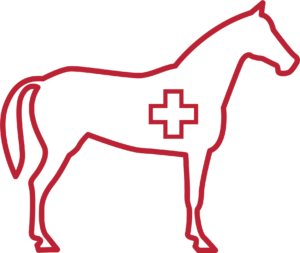
Health & Science
Standardbreds
EQUINE PHYSIOLOGY
Gastric ulcers in racehorses: impact on performance
Gastric ulcers are the most common gastric pathology in horses and can develop for a variety of reasons, depending on which part of the stomach is affected.
Psychology and welfare of racehorses: the impact of stress on performance
It is now a few years since the question of the equine welfare, which can be defined, according to the IFCE (The French Horse and Riding Institute), as “the good mental and physical health of the animal”, is developing and taking more and more importance into the mentalities. Some studies have been carried out and initiatives have been taken with the objective to sensibilize about the subject. The IFCE has notably led a survey in favor of animal welfare, relating different subjects as the evolution of the practices in favor of the
Heart murmur and performance: are they compatible?
The cardiovascular system can be compared to a huge orchestra, and the presence of any structural defect can alter the functioning of the system and throw the orchestra out of harmony. A heart murmur is added to the initially audible heartbeat and becomes a false note in the orchestra, requiring the trainer to intervene on several levels.
Breaks in racehorses: how to proceed?
The break in a racehorse is a period of rest. With performance being the key to success, the importance of a proper break for horses may arise. In this article, we will explore in detail the concept of the ‘break’ in racehorses and explain why it is a crucial element in maximising their performance.
Muscle memory in the athletic horse
During training, the horse engages what is known as his muscle memory, so that his muscles are able to carry out the effort almost automatically. However, the source of this memory is not in the muscle, but in the brain.
Conditioning of the athletic horse
The conditioning of the athletic horse takes place through physiological changes. During training, the body adapts to the loads applied to his various skeletal, muscular and cardiovascular systems.
How do these different systems adapt? What is the purpose of their conditioning?
RACEHORSE TRAINING MONITORING
“It’s exciting and we can’t wait to learn more”- horses to wear heart rate monitors (Equimetre) in BHA pilot
Like all major sports, advances in technology and data science are playing an increasingly important role across British racing, especially when it comes to improving horse welfare, safety and performance.
Tom Charlton & John O’Shea: revolutionizing training techniques using Equimetre data
Tom Charlton shares his experience and views on the growing importance of data in racehorse training
8 reasons to do the Essentials program
Data is revolutionising equestrian sports and racing. the Essentials training is the ideal introduction for trainers, riders and equine science enthusiasts.
How the Advanced program helped Nick Pinkerton with equine performance and analysis
In this interview, Nick Pinkerton reflects on his career, his involvement in the Advanced program, and his ambitions to revolutionize equine performance analysis through data science.
Dashboard Vet, launch of a new feature: ECG sharing and analysis
Arioneo is launching a new feature that makes it easier to share and analyse your horse’s ECG with your vet.
EQUIMETRE 2.0: Revolutionize your training with real-time tracking
With the recent release of Equimetre 2.0, our sensors have taken technology to a new level, offering real-time tracking functionality.
EQUINE HEALTH & SCIENCE
“It’s exciting and we can’t wait to learn more”- horses to wear heart rate monitors (Equimetre) in BHA pilot
Like all major sports, advances in technology and data science are playing an increasingly important role across British racing, especially when it comes to improving horse welfare, safety and performance.
How the Advanced program helped Tammy Feek harness the full potential of equine data
Having used Equimetre technology for several years, Tammy explains how the program has deepened her understanding of data analysis and its role in optimizing racehorse performance and well-being.
Michael Blomeley: How the Advanced program is helping racehorse training with data science
Driven by his ambition to become a successful trainer, Michael explains how the Advanced program has equipped him to integrate data and sports science into his daily routine.
YOUNG RACEHORSES MONITORING
The role of data in racehorse pre-training
Racehorse pre-training increases the likelihood of success on the track. To maximize the performance of young athletes, racehorse trainers understand the necessity of developing muscle strength, boosting general fitness, and providing proper ground work.
How to follow the training of your two-year-olds?
Every winter, a new generation of racehorses arrives at the stables. How to follow the evolution of these two-year-olds during their first month of training?
When and how to detect your young horses’ locomotor profile?
Knowing your young horses’ locomotor profile is the first step to detect the future champions… What is their natural acceleration strategy?
STANDARDBREDS TRAINING
Active recovery in Standardbreds’ training: what are the benefits?
Active recovery for Standardbreds is still relatively unexplored. Discover the best practices in terms of recovery to optimise your racehorses’ performance.
Standardbreds: analyze an Interval Training session with Equimetre
Interval Training is a specific method of training the Standardbreds. Find out what data to analyze in order to follow this type of training.
The standardised test with standardbreds: what goals?
The standardised test is an intense training aiming to measure the cardiac and metabolic capacities of a race horse’s organism…. Learn more about it.
TESTIMONIALS
Interview with Matthew Taylor: what the Essentials & Advanced programs brought to his professional experience
Discover Matt Taylor’s opinion on Arioneo Institute training courses and the evolution of human and equine performance thanks to new technologies.
How the Advanced program helped Tammy Feek harness the full potential of equine data
Having used Equimetre technology for several years, Tammy explains how the program has deepened her understanding of data analysis and its role in optimizing racehorse performance and well-being.
Michael Blomeley: How the Advanced program is helping racehorse training with data science
Driven by his ambition to become a successful trainer, Michael explains how the Advanced program has equipped him to integrate data and sports science into his daily routine.


